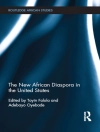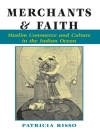Martin Luther King, Jr., was not an advocate of homosexual rights, nor was he an enemy; however both sides of the debate have used his words in their arguments, including his widow, in support of gay rights, and his daughter, in rejection. This fascinating situation poses the problem that Michael G. Long seeks to address and resolve.
Tabla de materias
Introduction: Keeping the Dream Straight? PART I: KINGS IN CONFLICT 1. ‘It’s Consistent with His Philosophy’: Coretta Scott King’s Advocacy for Gay Rights 2. ‘He Did Not Take a Bullet for Same-Sex Unions’: Bernice King’s March Against Same-Sex Marriage PART II: KING IN CONTEXT 3. ‘Your Problem Is Not At All an Uncommon One’: King, Psychiatrists, and the Problem of Homosexuality 4. ‘I Am Fundamentally a Clergyman’: King, Theologians, and the Sin of Homosexuality 5. ‘He Praised Him for His Ability and Contacts’: King’s Relationship with Bayard Rustin PART III: CIVIL RIGHTS AND GAY RIGHTS 6. From Black to Gay: King’s Concern about Discrimination Against Gays 7. From King to Kameny – and Coretta: A Final Conclusion Afterword: Archbishop Desmond Tutu
Sobre el autor
Author Michael G. Long: Michael G. Long is Assistant Professor of Religious Studies and Peace and Conflict Studies, Elizabethtown College, USA Afterword by Archbishop Desmond Tutu: Archbishop Desmond Tutu is a retired Anglican bishop, Cape Town, South Africa












